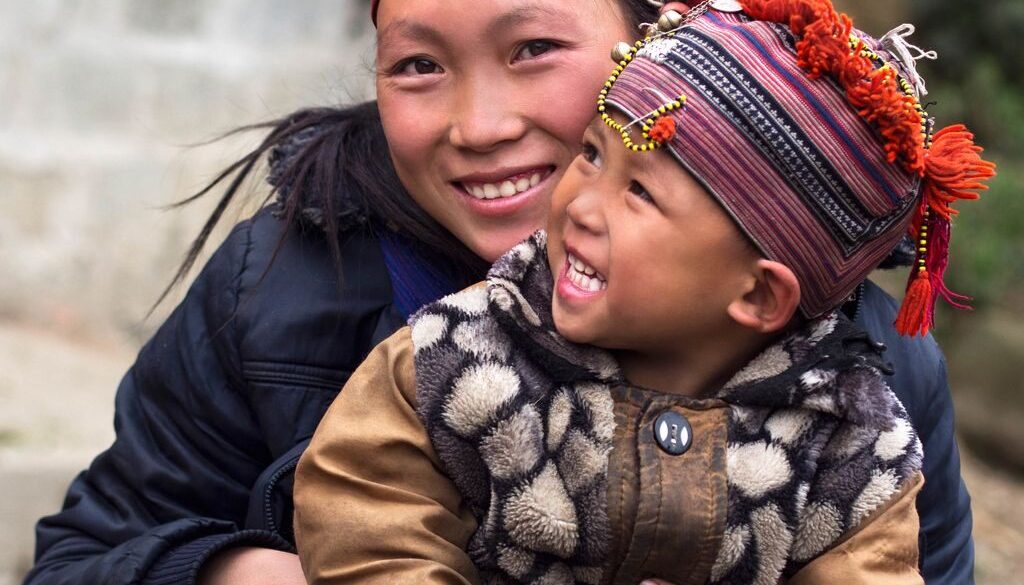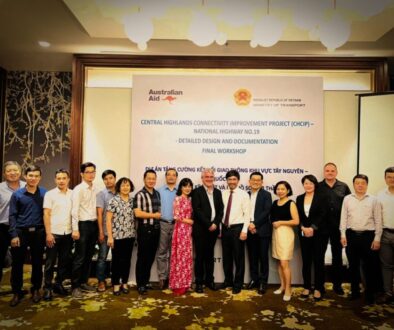Local farmers and women keep high hopes for the upgrade of the Noi Bai – Lao Cai expressway
IN BRIEF
“Women from the ethnic minorities lead a very difficult life. With the new road, they can go farming more conveniently and can trade farming products to improve local living conditions.” – Ms Duong Thi Tien, owner of one of the households affected by the construction.
A recent site visit to Lao Cai showed residents are very supportive of the upgrade of the provincial roads connecting to Noi Bai-Lao Cai expressway that will link the poor provinces of the North-West of Vietnam to the Greater Mekong Subregion (GMS) economic corridor.
Interviews carried out as a part of the socio-economic surveys indicate local people, especially farmers and women, are enthusiastic about the opportunities for economic and social development that the upgraded road will bring.
KNOW MORE…
“When implemented, the connectivity project will facilitate trading of goods and extend service businesses. The farmers will benefit in terms of connectivity, goods trading and convenient travel.”
The Greater Mekong Subregion – Northern Mountain Provincial Transport Connectivity Project (NMTCP), in which Aus4Transport is collaborating with the Asian Development Bank (ADB) and the Ministry of Transport of Vietnam (MOT), is a USD245 million project that aims to improve transport connectivity in the poor provinces of Northwest Viet Nam by providing Lai Chau, Lao Cai and Yen Bai with better accessibility to the GMS economic corridor.
The Project will improve and upgrade two national highways and two provincial roads with approximately 199 km in length, connecting several towns and districts in the provinces of Lai Chau, Lao Cai and Yen Bai to the Noi Bai–Lao Cai Expressway. The improvement of these sections of the secondary road network will have a direct impact on local livelihoods, providing new opportunities for trade and better access to education and healthcare facilities.
Aus4Transport is contributing to this joint project with a USD4.5 million grant that finances the consulting services for the Detail Design and Documentation (DDD). The Program will also fund the Road Safety Program and Awareness Campaign, the HIV/AIDS and Human Trafficking awareness campaign and the Axle Load Control Program.
It has been anticipated that the project might pose some risks in regard to greenhouse gas emissions, climate-related hazards or involuntary resettlement, specifically affecting vulnerable groups, such as ethnic minorities, women and children. In order to mitigate these risks, and as part of the work undertaken by Aus4Transport during the development of the DDD, resettlement plan, ethnic minority development, environmental management plan and a gender equality action and social inclusion plan are being developed.
“Here, ethnic minorities and Kinh people are living equally. For those losing agricultural land, jobs should be created; for those losing residential land, a new place of living should be arranged. Everything should be done in an equal manner.”
The socio-economic survey (SES) is a key element in understanding the livelihood and socio-economic status of the people directly affected by the Project, especially by involuntary land acquisition. By gathering specific information about the affected households, the SES is crucial to develop plans on how to best restore the livelihoods of affected households, and to establish a baseline for monitoring Project impact. They are also important to reduce potential risks that could arise during and after the implementation of the Project, such as business disruption, loss of livelihoods and the spread of HIV/AIDS or human trafficking.
The SES took place between 15 January and 2 February 2021 in the provinces of Lai Chau, Lao Cai and Yen Bai, where an independent team interviewed a representative sample 1,319 (approximately 30%) of the estimated 4,238 households that will be affected by the road upgrade. The results will be analysed and collated into a database, informing plans and measures for resettlement, livelihood restoration and ethnic minority development. The aim is to ensure that all households are at least as well, if not better off, as a result of the project.
Participants, mostly farmers and women belonging to ethnic minorities, showed great support for the project and expressed their happiness to be consulted and considered.
“I find surveys and consultations with the public are a helpful practice. You can obtain their direct responses and opinions, which is really useful to understand the actual conditions of the locality”
The socio-economic surveys are aligned to Aus4Transport objective of supporting Vietnam to enhance their transport infrastructure, while introducing best international technical and social practices.




